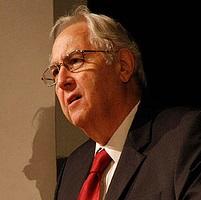Ted Cruz’s win in Iowa was a game-changer. No longer can anyone say that Donald Trump cannot be beaten and is invincible. It also revealed how amateurish Trump is in politics. He had no team on the street. Instead of emulating Cruz, who covered every county in Iowa and had a powerful ground team, Trump thought he could win simply with a few speeches and by concentrating attention on himself, like when he skipped the Republican debate. That strategy backfired. Most observers think he would have done better had he appeared at the debate.
But the real winners of the Iowa caucus were Marco Rubio on the Republican side and Bernie Sanders on the Democrat side. Rubio’s final toll was a skimpy one percent less than Trump received. He far exceeded his own team’s expectations, attaining 23 percent of the vote to Trump’s 24 percent. Now he is a real contender for the nomination.
Many conservatives love Cruz and hate Rubio, but they might be making a mistake by throwing their support behind Cruz. That strategy might only make sense if they want Hillary to become president rather than Rubio. Some pundits proclaim that Cruz will do better in the many states that Huckabee and Santorum did poorly in after they won Iowa, when their campaigns quickly fizzled. Even if it is the case that Cruz has a vastly better-organized ground game and sufficient money, one must ask if that will be enough to win the nomination, when most Republican voters believe that he will not prevail in a general election against Hillary.
If Rubio does well in New Hampshire and comes in far ahead of Chris Christie, John Kasich and Jeb Bush, major donors who had supported one of these “establishment” candidates will likely put their money on him. Were he to come in a strong third or even best Cruz and come in second, it could spell the end of the Christie, Kasich and Bush campaigns -- and at least two of them will probably drop out of the race. On the other hand, if the troika does much better than expected, pulling votes away from Rubio, Cruz could come in second. In that case, Rubio may not have enough momentum to gain an edge in the other primaries.
But if Rubio emerges from New Hampshire as a strong number three like he did in Iowa, he will become the clear alternative to both Trump and Cruz. Only Marco Rubio has the chance of getting the votes of those in the Republican Party who call themselves “somewhat conservative,” “moderate” and “mainstream conservative.” As Rubio said in his own post-Iowa speech, he will unify the party around his candidacy, something I think that neither Trump or Cruz will be able to do.
Now for the Democrats. As Bernie Sanders said in his post-Iowa speech, he is essentially tied with Hillary Clinton. Her “win” is hardly that. She entered expecting an overwhelming victory. Instead, a left-wing socialist received essentially the same percentage of votes that she did.
But Clinton is likely to best Sanders in South Carolina and most of the other states. Nevertheless, Sanders now has momentum, and many Democratic voters who ignored him will now view him as an alternative candidate who is worth considering. Thus it will be a real and serious fight between Clinton and Sanders, and to win it, Sanders will likely need to go negative and begin to hit Clinton hard where she is vulnerable. Already great amounts of money are flowing into the Sanders campaign, allowing him to expand his campaign and to run more television ads in the states in which Clinton is favored to win.
The same disaffected white working-class and middle-class voters who are throwing their support to Trump might now desert the Republicans and vote for Bernie Sanders in a general election. They see Hillary as a tool of Wall Street, while they see Sanders, as they see Trump, as a candidate who can begin to restore the old America in which they had good jobs that paid good wages.
For the general election, in such difficult times, and after eight years of a Democratic administration, the presidency should go to a Republican. It will, if Republican primary voters understand that they have to nominate a candidate with wide appeal who can win in a nationwide general election. Rubio, even if not perfect to some Republicans, is certainly better than eight more years of leftist Democrats making policy.















